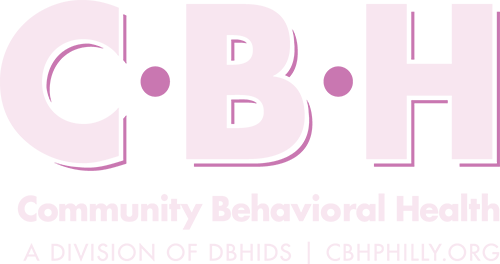CBH Deputy CMO Dr. Williams Discusses Mental Health and the BIPOC Community
Did you know that people from Black, Indigenous, and People of Color (BIPOC) communities are less likely to receive mental health care? In 2015, among U.S. adults with mental illness, 48% of white adults received mental health services compared to 31% of Black and Hispanic adults and 22% of Asian adults.[1]
While mental health issues are prevalent across all demographics, the BIPOC community faces unique challenges that exacerbate these issues. In this blog post, CBH Deputy Chief Medical Officer Samuel Williams, III, MD, MBA, explores the disparities in mental health care BIPOC communities experience, highlights initiatives that address these disparities, and offers recommendations to better support the mental health of BIPOC individuals.
Mental Health Challenges Among BIPOC Communities
BIPOC communities across the U.S. experience mental health challenges at disproportionately higher rates:
- Only one in three African Americans who need mental health care receive it.[2]
- Black people with mental health conditions-especially those with Schizophrenia, bipolar disorders, and other psychoses – are more likely to be incarcerated than people of other races.[3]
- Asian American/ Pacific Islanders are least likely to seek mental health services than any other racial/ethnic group. They are also three times less likely to access mental health services than their white counterparts.[4]
- Native Americans have the highest rate of young adult suicide of any ethnicity.[5]
Disparities in Mental Health Care Among BIPOC Communities
Several factors lead to pervasive disparities that prevent BIPOC communities from receiving quality mental health care:
- Systemic Racism and Discrimination: Persistent racism and discrimination contribute to chronic stress, which is a significant risk factor for mental health issues.
- Economic Inequality: Lower income levels and higher rates of unemployment in BIPOC communities limit access to quality mental health care.
- Cultural Stigma: Mental health issues are often stigmatized in many BIPOC cultures, discouraging individuals from seeking help.
- Lack of Cultural Competence: Many mental health professionals lack the training to understand and address the specific needs of BIPOC patients.
- Underrepresentation in Research: BIPOC individuals are often underrepresented in mental health research, leading to a lack of understanding about how mental health issues manifest in these communities.
Addressing the Mental Health Needs and Barriers that BIPOC Communities Face
Current initiatives that are working to address the mental health needs of BIPOC communities include:
- Community-Based Programs: Organizations like the National Alliance on Mental Illness (NAMI) offer culturally specific support groups and outreach programs tailored to BIPOC needs.
- Mental Health Advocacy: The Bebe Moore Campbell National Minority Mental Health Month campaign works to raise awareness and advocate for policy changes that address mental health inequities.
- The Asian Mental Health Collective: The Asian Mental Health Collective strives to normalize and destigmatize mental health within Asian communities by providing resources, education, and support networks.
- We R Native: Established by Native youth, the We R Native initiative offers mental health resources, supports, and advocacy tailored to address the unique challenges faced by Indigenous communities.
- The Steve Fund: The Steve Fund supports young people of color’s mental health and emotional well-being through programs, services, and partnerships that promote and reduce stigma around mental health.
- Therapy for Black Girls: The Therapy for Black Girls initiative provides a directory of therapists who are competent in working with black women and girls, as well as a collection of helpful resources and a supportive community.
Advocating for Change
To better support the mental health of BIPOC communities, recommendations for change should include:
- Increase Funding for Mental Health Services: Allocate more resources to mental health services specifically designed for BIPOC communities and expand Medicaid coverage for mental health treatment.
- Diversity in Healthcare: Train mental health professionals to understand and address the cultural and systemic issues affecting BIPOC individuals, ultimately improving cultural competency and representation. Encourage more BIPOC professionals to enter the mental health field.
- Promote Mental Health Education: Develop and distribute culturally relevant educational materials to reduce stigma, encourage help-seeking behavior, and normalize mental health discussions within BIPOC communities.
- Expand Research: Ensure that mental health research includes diverse populations to better understand and address the unique needs of BIPOC communities.
- Advocate for Policy Change: Support policies that address systemic inequalities and promote equitable access to mental health care.
Addressing the mental health challenges faced by BIPOC communities requires a multifaceted approach that includes increased funding, improved cultural competence, enhanced education, expanded research, and policy advocacy. By recognizing and addressing these challenges, we can move toward a more equitable mental health system that supports the well-being of all individuals, regardless of race or ethnic background.
REFERENCES
- Agency for Healthcare Research and Quality. 2015 National Healthcare Quality and Disparities Report. 2016
- Dalencour M, et al. “ The Role of Faith-Based Organizations in the Depression Care of African Americans and Hispanics in Los Angeles”. Psychiatric Services 2017. 68(4):368-374.
- Hawthorne W, et. Al. “Incarceration among adults who are in the public mental health system: rates, risk factors, and short-term outcomes.” Psychiatric Serv. 2012 Jan; 63(1):26-32.
- Urban Institute, Health Policy. (2019) Fighting the Stigma: Mental Health among Asian Americans and Pacific Islanders.
- Leavitt RA, Ertl A, Sheats K, Petrosky E, Ivey-Stephenson A, Fowler KA. Suicides Among American Indian/Alaska Natives — National Violent Death Reporting System, 18 States, 2003–2014. MMWR Morb Mortal Wkly Rep 2018;67:237–242
The information provided in this blog post is for general educational purposes only and does not constitute professional medical advice or treatment for a medical condition. Please consult your healthcare provider about any questions or concerns you may have regarding a medical condition.






